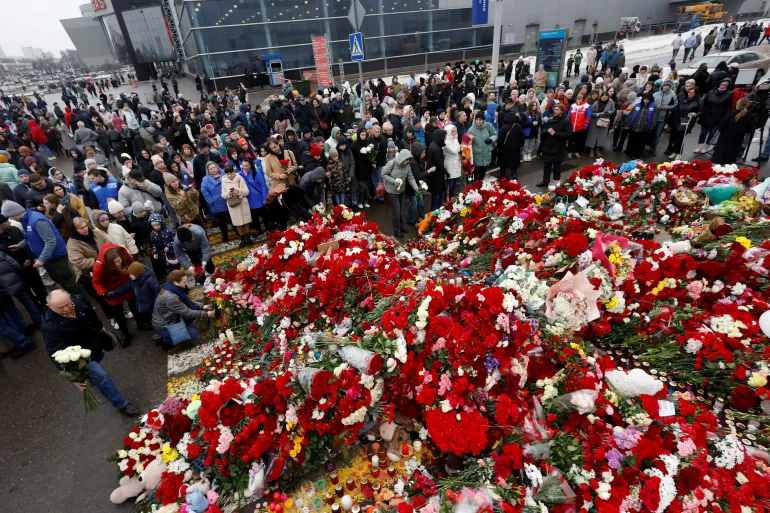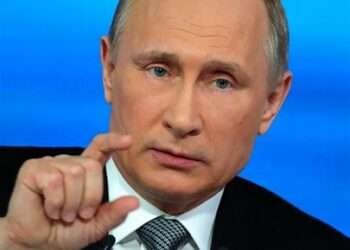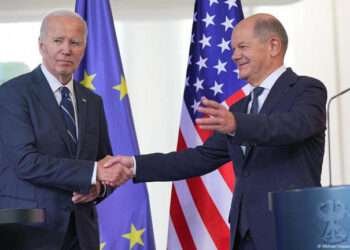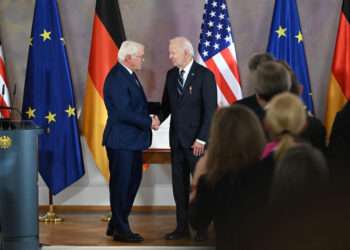Russia, like many nations, has invested significant resources in bolstering its security infrastructure and combating terrorism.
With a history marked by incidents of extremist violence, particularly in regions like the North Caucasus, the country has adopted stringent measures aimed at thwarting terrorist activities.
Yet, the Crocus City Hall massacre stands as a stark testament to the deficiencies plaguing Russia’s security apparatus, as the country’s main focus seems to be on its war in Ukraine.
With a death toll slightly higher than the devastating Paris attacks of 2015, the attack on Moscow’s Crocus City concert hall, is the deadliest attack claimed by the Islamic State (IS) on European soil.
Russia is currently in a state of mourning and grief.
The attack illuminates a catastrophic security failure on the part of Russian authorities.
There was the public warning from the U.S government earlier in March that it had learned of “imminent plans to target large gatherings in Moscow” by terrorists.
The warning, also shared privately with the Russian government, suggested Washington had picked up some fairly specific intelligence relating to an upcoming attack.
However, three days before the attack, Russian President, Vladimir Putin, brushed off these warnings, calling them an “attempt to scare and intimidate our society.”
The country’s security services are largely invested in the war in Ukraine and a relentless crackdown on political opposition at home, serving a perfect distraction from the terrorist attack.
Some Russians pointedly compared the absent police response to the concert hall attack with the overwhelming police presence at the funeral of opposition leader, Alexei Navalny.
Sharing his view on this, Mark Galeotti, an expert on the Russian security services, stated, “The FSB obviously had their priorities wrong. They had their main resources on Ukraine and on the domestic opposition.”
Andrei Soldatov, a leading Russian researcher, opined that the FSB had become “very efficient and innovative at repression … But these are not the qualities that help to prevent attacks happening.”
He added that time and again, “the FSB has failed as an intelligence collection agency because other things are needed: information-sharing capabilities between agencies, both domestic and foreign, and trust between those agencies and within those agencies.”
Four suspects have appeared in court in Moscow charged over the attack.
The men were officially identified as citizens of Tajikistan, the Tass state news agency said, and were remanded in custody for two months at Sunday’s hearing.
All four pleaded guilty.
Putin also claimed, without evidence, that Ukraine had “prepared a window” for the terrorists to cross the border from Russia into Ukraine.
However, Kyiv has denied any links to the attack and has indicated that it believes Moscow is preparing a pretext to escalate the conflict.
Meanwhile, Russian foreign ministry spokesperson, Maria Zakharova, disregarded the US intelligence reports saying that the Islamic State group was behind the concert hall attack.
Smokescreen Of Propaganda
The UK’s Chancellor, Jeremy Hunt, condemned the Kremlin after it appeared to seek to link Ukraine to the attack, which the Islamic State (IS) group has claimed responsibility for.
“We have very little confidence in anything the Russian government says. We know that they are creating a smokescreen of propaganda to defend an utterly evil invasion of Ukraine,” he stated.
“That doesn’t mean that it’s not a tragedy when innocent people lose their lives, when you have horrible bombings.
“But I take what the Russian government says with an enormous pinch of salt, I am afraid, after what we have seen from them over the last few years.”
Jeremy Hunt
Despite assertions from Russian authorities attempting to shift blame onto Ukraine, such scapegoating only serves to obfuscate the systemic failures that allowed such a catastrophic attack to occur.
Moreover, the attack underscores the imperative for international cooperation in combating the global scourge of terrorism.
While Russia has often been at odds with Western nations on various geopolitical fronts, the threat posed by extremist groups transcends borders, necessitating unified and concerted efforts to confront and neutralize such threats.
Hunt said that the UK and other European countries should “absolutely” be concerned about the re-emergence of IS on the world stage.
He said, “If it is Islamic State, they’re utterly indiscriminate in what they do, they’re prepared to murder in the most horrific way.”
As Russia mourns the lives lost, it must confront the harsh realities exposed by the Crocus City Hall attack and redouble its efforts to confront the menace of terrorism head-on.
Failure to do so risks further emboldening extremist elements and perpetuating a cycle of violence that threatens the fabric of society.
It is incumbent upon Russia, along with the international community, to rise to the challenge and collectively strive for a safer and more secure world.
READ ALSO: Ghana’s Cocoa Woes: Impact on Trade Surplus and Cedi’s Stability





















